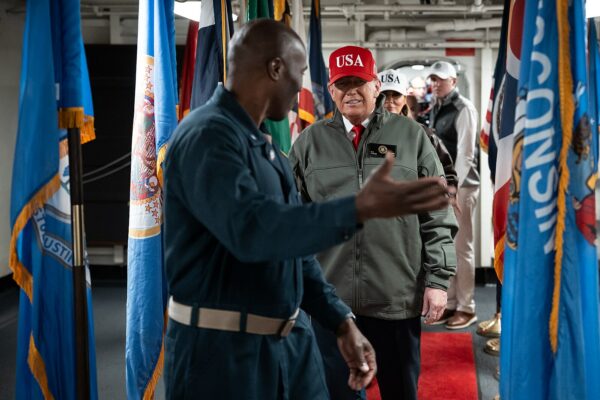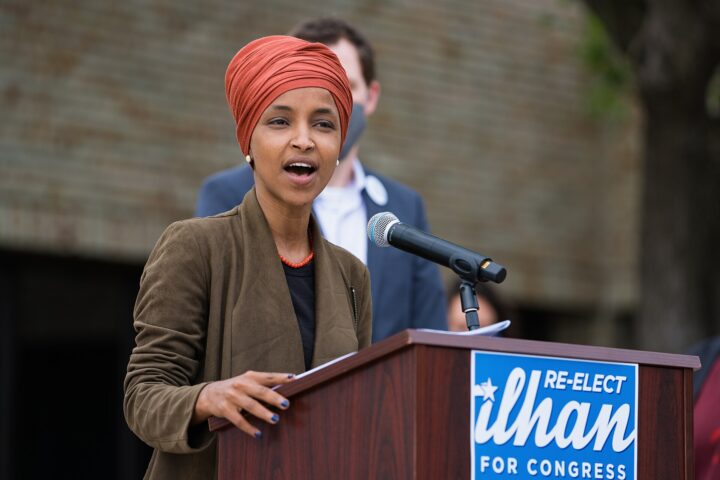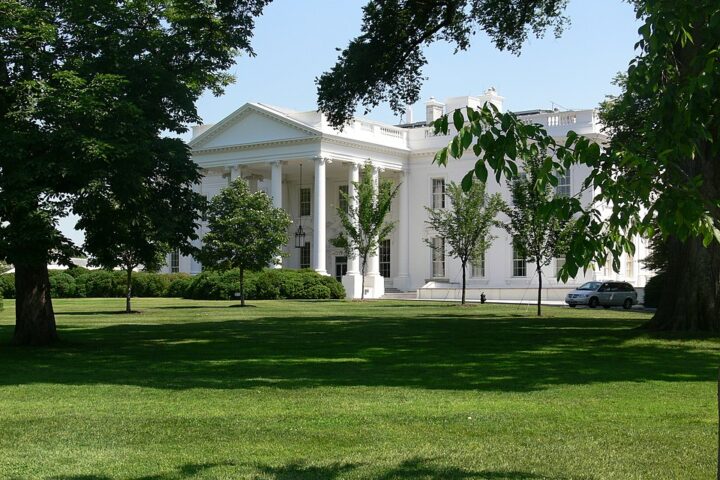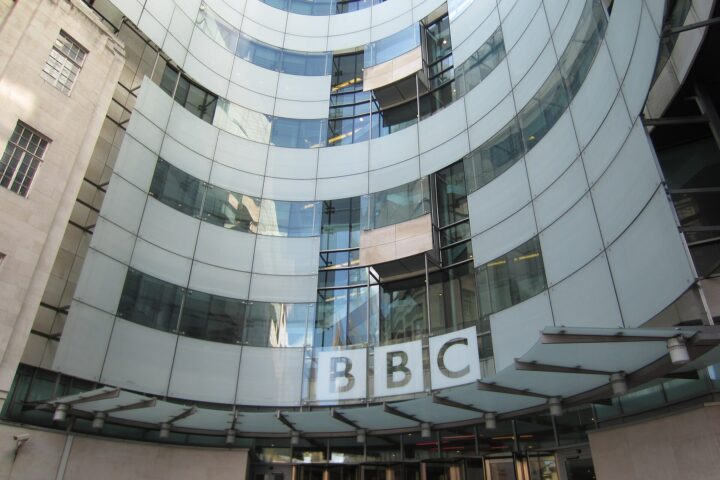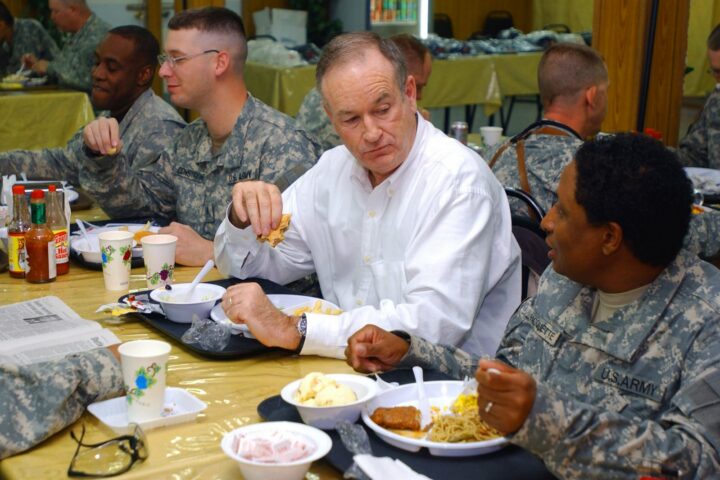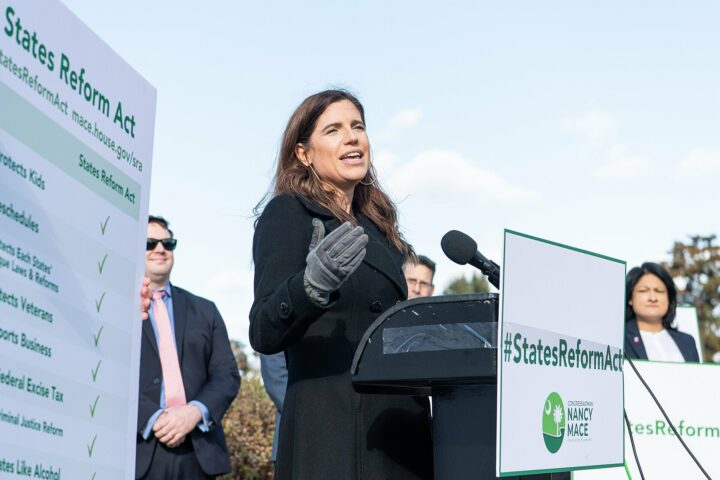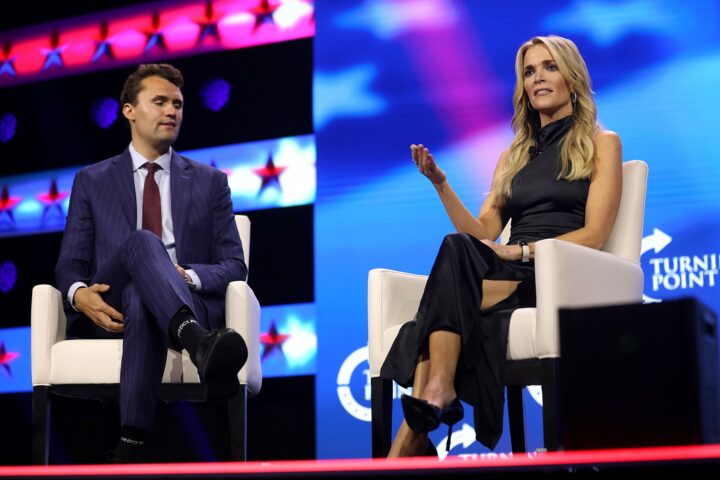Speaking aboard the USS George Washington at the Yokosuka Naval Base in Japan, President Donald J. Trump delivered a firm and unapologetic message on law enforcement and public safety in America’s cities.
“We have cities that are troubled,” Trump declared, emphasizing the urgent need for action. “And we’re sending in our National Guard — and if we need more than the National Guard, we’ll send more than the National Guard, because we’re gonna have safe cities. We’re not gonna have people killed in our cities. Whether people like that or not, that’s what we’re doing.”
The remarks come amid mounting concerns over violent crime in Democratic-led cities. Chicago, for example, experienced a violent Labor Day weekend in September, with nearly 60 shot and at least nine killed. In 2024, the city recorded 572 murders, marking its thirteenth consecutive year leading the nation in homicides. Yet, Democratic Mayor Brandon Johnson and Illinois Governor J.B. Pritzker resisted federal intervention. “Donald Trump is attempting to manufacture a crisis,” Pritzker claimed, while acknowledging that “big cities have crime.”
The Trump administration, however, argued that inaction was putting residents at risk. “Despite pleas from residents, city council members, and even MSNBC hosts,” a White House statement read, “Governor Pritzker is too blinded by Trump Derangement Syndrome to act in the best interest of his constituents.” Trump underscored the federal responsibility, stating, “We’re going in. I didn’t say when we’re going in. This isn’t political — I have an obligation.”
By early October, that obligation was fulfilled when Secretary of War Pete Hegseth authorized 300 Illinois National Guard troops to assist federal agents and protect facilities under threat in Chicago. Pritzker condemned the move as “Trump’s Invasion,” asserting that “federalized members of the Illinois National Guard” were deployed “against our wishes.” Administration officials countered that the deployment was legal under 10 U.S.C. §12406, which allows federal action when regular law enforcement cannot enforce federal statutes.
Trump referred to the city in stark terms: “Everybody knows Chicago is a hellhole right now. We’re going to straighten it out.” Operation Midway Blitz, a coordinated sweep in Chicago, resulted in the apprehension of hundreds of individuals with criminal backgrounds, including gang members and murderers. Plans were also underway for the Texas National Guard to reinforce the Illinois deployment.
The president did not limit his focus to Chicago. As riots unfolded in Portland, Oregon, Trump approved the deployment of 200 California and Oregon National Guard members, calling cities like Portland and Chicago “burning.” When a federal judge blocked part of the order, Trump denounced the ruling as “shameful,” insisting that officials who downplayed the crisis were failing the public. “I believe the politicians are under threat,” he said. “There’s no way someone can say things are wonderful in Chicago. We’re going to straighten it out. And I think Pritzker — he’s afraid for his life.”
Trump’s remarks in Japan underscored his commitment to restoring law and order. “We’re gonna have safe cities,” he said. “Whether people like that or not.” The message was clear: federal authority will be leveraged to protect citizens when local governments falter, and lawlessness will no longer be tolerated.
[READ MORE: Jean-Pierre’s Memoir Draws Sharp Rebuke and Renewed Scrutiny of Democratic Messaging]

